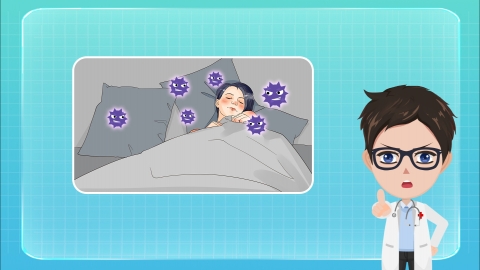How is herpes virus infection treated?
Generally, treatment methods for herpesvirus infection mainly include general treatment, physical therapy, drug therapy, traditional Chinese medicine (TCM) treatment, and immunotherapy. A detailed explanation is as follows:
1. General Treatment
Patients should maintain cleanliness and dryness of the affected area, avoiding scratching to prevent skin damage and subsequent infections. Adequate rest should be taken in daily life, avoiding excessive fatigue. Additionally, dietary adjustments are necessary, including increased intake of foods rich in vitamins and proteins, to enhance physical resistance and create favorable conditions for the body to combat the virus.

2. Physical Therapy
Physical therapy can alleviate symptoms caused by herpesvirus infection through specific methods, such as ultraviolet (UV) and infrared radiation. UV radiation improves local blood circulation, reduces inflammatory reactions, and relieves pain and itching. Infrared radiation helps soothe local tissues, accelerate the healing of damaged skin, and promote recovery.
3. Drug Therapy
Drug therapy is a commonly used treatment method for herpesvirus infection. Patients can use antiviral medications such as acyclovir cream, penciclovir gel, and famciclovir tablets as directed by a physician to improve symptoms.
4. Traditional Chinese Medicine (TCM) Treatment
In TCM, herpesvirus infection is associated with internal damp-heat in the liver meridian and spleen deficiency with dampness accumulation. Therefore, herbs that clear heat, detoxify, strengthen the spleen, and resolve dampness are commonly used, such as Long Dan Xie Gan Wan (Dragon胆Liver Bitter Pill) and Shen Ling Bai Zhu San. Acupuncture can regulate the body's qi and blood and meridians, providing some relief from symptoms such as pain caused by herpesvirus infection.
5. Immunotherapy
Immunotherapy aims to regulate the patient's immune system function and enhance the body's ability to fight the virus. Common approaches include administering immunomodulatory agents. These agents stimulate the immune system, enhance the activity of immune cells, improve the body's ability to clear the herpesvirus, reduce the likelihood of recurrence, and help patients better manage their condition.
In addition, during treatment, patients should follow medical advice for proper medication use, undergo regular follow-up examinations, and take appropriate personal precautions to avoid transmitting the virus to others. If symptoms worsen or any abnormalities occur during treatment, prompt medical attention should be sought to adjust the treatment plan.










